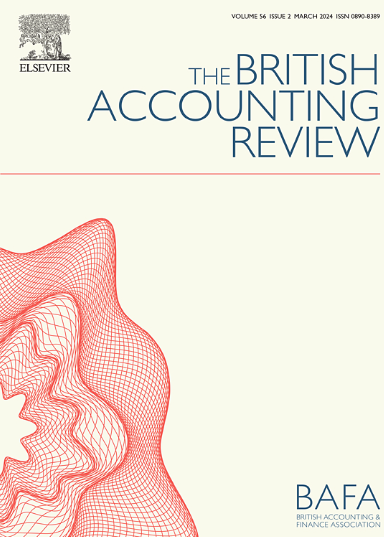Nineteenth century audit reports: Evolution from free-form to standardised wording
IF 9.4
3区 管理学
Q1 BUSINESS, FINANCE
引用次数: 0
Abstract
The research comprises a case study focussed on the wording of 34 audit reports of the British South Africa Company (BSAC), which Cecil Rhodes established by Royal Charter to colonise Rhodesia from 1889 to 1924. The accounts were audited by Cooper Brothers & Co., now PricewaterhouseCoopers. The research analyses three audit-report characteristics that influenced audit-report wording. Of the 34 audit reports, eight contained qualified (i.e., unfavourable) audit opinions. Based on verbatim annual general meeting minutes and private correspondence, we provide evidence of the effect of the audit qualifications. The research further analyses the evolution of the audit-report wording over the period. Initially, the auditors customised the audit-report wording. Each year, they made micro changes to improve the precision of the wording. Then, in 1911, well in advance of any audit-report regulations, the wording became standardised and remained so until the end of the study period. The paper adds insights into why auditors standardised audit-report wording. We conjecture that years of struggling with customised wording prompted the auditors to adopt standardised wording. We do not know whether this decision applied just to the BSAC audit reports, or whether 1911 heralded standardised audit-report wording for all Cooper Brothers & Co. audit reports.
十九世纪的审计报告:从自由格式到标准化措辞的演变
该研究包括一项案例研究,重点是英属南非公司(BSAC)34 份审计报告的措辞,该公司是塞西尔-罗兹根据皇家宪章成立的,目的是在 1889 年至 1924 年期间将罗得西亚殖民化。这些账目由 Cooper Brothers & Co.(即现在的普华永道)审计。研究分析了影响审计报告措辞的三个审计报告特征。在 34 份审计报告中,有 8 份包含保留(即不利)审计意见。根据逐字记录的年度股东大会会议记录和私人信件,我们提供了审计保留意见影响的证据。研究进一步分析了审计报告措辞在此期间的演变。最初,审计师定制了审计报告的措辞。他们每年都会进行微小的改动,以提高措辞的精确性。然后,1911 年,在任何审计报告法规出台之前,审计报告的措辞开始标准化,并一直保持到研究期结束。本文对审计师规范审计报告措辞的原因进行了深入探讨。我们猜测,审计人员多年来一直在使用定制的措辞,这促使他们采用了标准化的措辞。我们不知道这一决定是否只适用于 BSAC 的审计报告,或者 1911 年是否预示着库珀兄弟公司的所有审计报告都采用标准化的审计报告措辞。
本文章由计算机程序翻译,如有差异,请以英文原文为准。
求助全文
约1分钟内获得全文
求助全文
来源期刊

British Accounting Review
BUSINESS, FINANCE-
CiteScore
8.60
自引率
3.90%
发文量
39
审稿时长
76 days
期刊介绍:
The British Accounting Review*is pleased to publish original scholarly papers across the whole spectrum of accounting and finance. The journal is eclectic and pluralistic and contributions are welcomed across a wide range of research methodologies (e.g. analytical, archival, experimental, survey and qualitative case methods) and topics (e.g. financial accounting, management accounting, finance and financial management, auditing, public sector accounting, social and environmental accounting; accounting education and accounting history), evidence from UK and non-UK sources are equally acceptable.
 求助内容:
求助内容: 应助结果提醒方式:
应助结果提醒方式:


